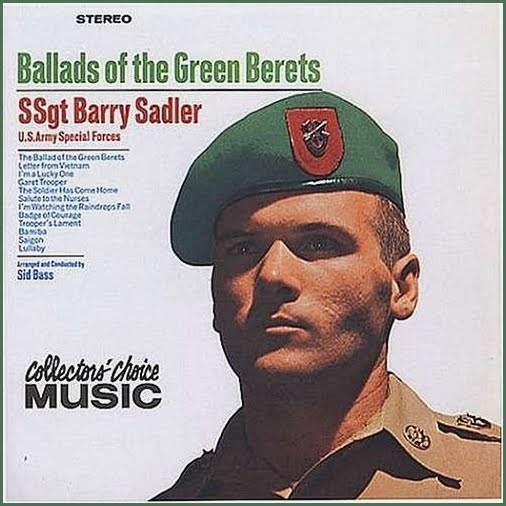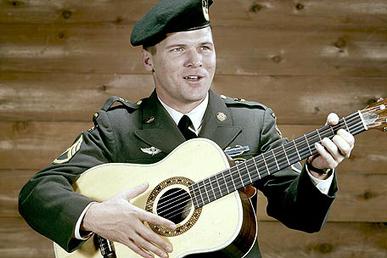Just had the misfortune to turn on the TV and find the laughable “The Green Berets” on, which I’ve carefully avoided watching in the nearly half century since it was foolishly produced by people who think that some part of ?California? looks exactly like some part of Vietnam and that John Wayne is a credible example of tiger suited special force Americans destroying vast numbers of Vietnamese enemy by firing silly little smoke bombs at them, with no corresponding damage from the meagre rounds fired by the enemy with their magnificent muzzle flash eliminators while the clever Americans have brilliant walkie talkies which don’t require the operator to press any buttons or otherwise do anything to change from receive to transmit, etc, etc.
Actually, “The Green Berets” is very much more embarrassing than laughable, but still well up at the top of awfully bad war movies about any war, even allowing a huge discount for the usual American celluloid chauvinism and nauseating mawkishness with the predictable presence of a cute mop top Vietnamese kid who, if I was directing the film, I would personally have shot before filming started.
On the basis of the appalling cinematic idiocy I watched on “The Green Berets”, off and on over half an hour or so as our commercial TV channels can’t tell the time unless they’re broadcasting something they think is really important like the news or football games which they start to the exact second, I’m glad I didn’t waste any time watching it before.
It preceded what I wanted to watch, “Cross of Iron”, which was made about ten years later and is for its time and still a very much deeper and more complex film about war and those who fight wars, on any side. But a long way short of “Come and See” although about on the same level as the final episodes of the supposedly comedic “Black Adder”.
I’m offering "The Green Berets"as one of the ten worst war films ever made.
Of major popular films, I’d put “Platoon” not too far outside the top ten as rather facile but saved mostly by a good sound track (can’t go wrong with Smokey Robinson, Aretha Franklin and Percy Sledge) and “Apocalypse now” as not a contender as it was only vaguely connected with reality, never mind the war in Vietnam (Not least because it is based on a Conrad novel set well before WWI on a different continent, being Africa.). “The Thin Red Line” and especially “The Big Red One”, neither of which had great popular success, were better films than the former two.









